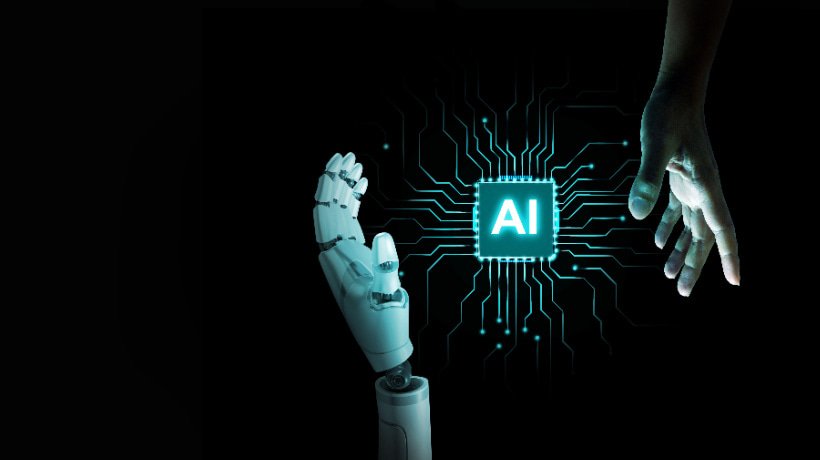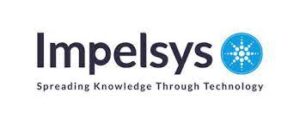The Rise Of AI In eLearning Solutions
AI is no longer a futuristic concept in the education sector; it has become the backbone of modern Learning and Development solutions. The global eLearning market is growing rapidly, and organizations are increasingly seeking smarter ways to personalize learning experiences. Instead of static courses that serve a "one-size-fits-all" approach, AI enables platforms to tailor content dynamically to each learner's goals, pace, and performance. From eLearning course creation to real-time learner support, AI is streamlining processes that once required extensive human intervention. Tools that incorporate Natural Language Processing (NLP), Machine Learning (ML), and data analytics are now enabling LMS course creation teams to deliver personalized learning paths that truly adapt to user behavior.
How AI Is Transforming eLearning Solutions
Adaptive Learning: A Customized Path For Every Learner
At the heart of AI-driven personalization lies adaptive learning, a method that uses algorithms to analyze data and adjust content based on an individual's strengths, weaknesses, and learning style.
Imagine two learners taking the same online course. One quickly grasps theoretical concepts, while the other needs more visual examples. An AI-powered eLearning solution detects this difference and automatically adjusts the course content, pacing, and difficulty. The result? Each learner experiences a unique, optimized journey that maximizes engagement and knowledge retention.
For organizations, this adaptability means that training programs can scale efficiently while still maintaining a human touch. Personalized modules not only boost learner satisfaction but also lead to measurable performance improvements.
Chatbots And Virtual Tutors: 24/7 Intelligent Support
Another way AI is transforming eLearning course creation is through intelligent chatbots and virtual tutors. These AI-powered assistants provide real-time help, answering questions, clarifying doubts, and even recommending additional resources.
For example, a learner struggling with a specific topic can ask a chatbot for assistance. The AI system can instantly pull relevant material, explain concepts, or schedule additional practice exercises. In corporate environments, chatbots also guide employees through LMS course creation systems, helping them navigate modules, track progress, and complete compliance training on time.
This constant, intelligent support fosters a sense of autonomy and keeps learners motivated, even in self-paced or remote settings.
Predictive Analytics: Anticipating Learner Needs
While adaptive learning focuses on personalization during the course, predictive analytics goes one step further by forecasting future learning behavior. By analyzing learner data, such as time spent on tasks, quiz scores, or engagement rates, AI can predict which users may fall behind or need additional support.
For Instructional Designers and eLearning creation teams, this insight is invaluable. They can proactively refine content, intervene early, or even suggest remedial learning paths before problems arise. Predictive analytics helps transform reactive teaching into proactive coaching, creating a more responsive and results-driven learning ecosystem.
Moreover, organizations using Learning and Development solutions integrated with predictive analytics gain a clearer understanding of training ROI. They can identify which courses drive the highest engagement, where learners struggle, and how to align programs with business outcomes.
Benefits For Organizations And Learners
The integration of AI into eLearning solutions delivers several tangible benefits for both learners and organizations:
- Personalized learning journeys
Every learner gets a unique path based on their pace and performance. - Improved engagement and retention
Relevant, adaptive content keeps learners motivated. - Scalable training
AI automates content recommendations and assessments, enabling LMS course creation teams to manage large learner groups efficiently. - Data-driven decision making
Analytics help organizations refine training strategies and demonstrate ROI. - Continuous support
Chatbots provide instant answers, reducing dropout rates and improving satisfaction.
Challenges And Ethical Considerations
Despite the many advantages, AI adoption in eLearning course creation isn't without challenges. Data privacy, algorithmic bias, and the need for transparent systems remain key concerns. Organizations must ensure that AI models respect learner data and maintain fairness across demographics. Additionally, balancing automation with the human touch is crucial; AI should enhance, not replace, the instructor's role.
The Future Of Personalized eLearning
As AI continues to evolve, the possibilities for eLearning creation are expanding rapidly. We can expect to see systems that not only personalize content but also understand emotional cues, recommend career paths, and even assess soft skills using sentiment analysis.
Forward-thinking organizations that embrace AI-powered Learning and Development solutions today will be better positioned to meet tomorrow's training challenges. By integrating adaptive learning, intelligent chatbots, and predictive analytics, they can create truly learner-centric experiences that drive performance and business impact.
Conclusion
AI-driven personalization is not just an upgrade to existing eLearning solutions; it's a complete reimagining of how learning happens. As technology continues to advance, LMS course creation will become smarter, faster, and more intuitive, delivering training experiences that are as unique as the learners themselves. The future of eLearning is intelligent, adaptive, and deeply personal, and AI is the key to unlocking its full potential.










